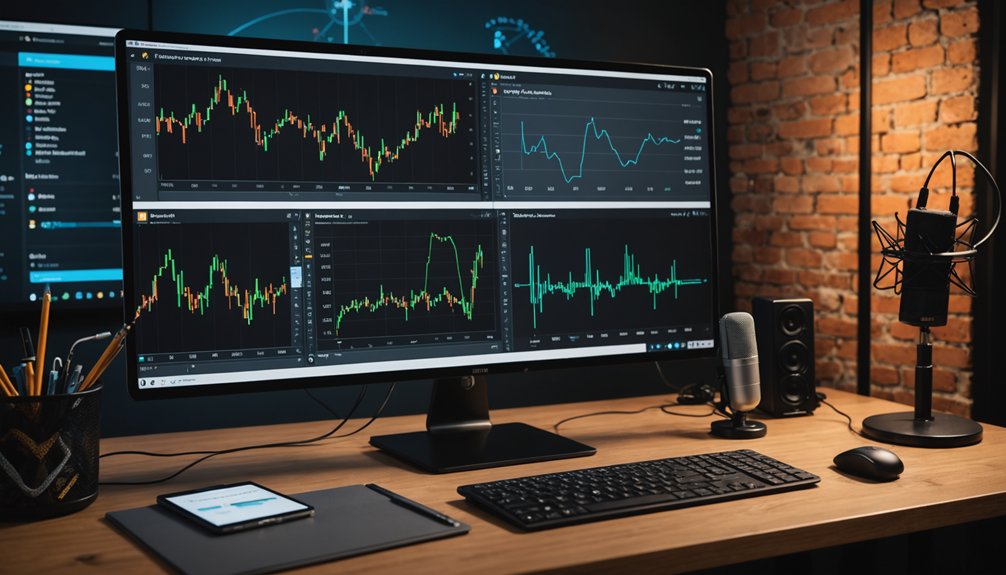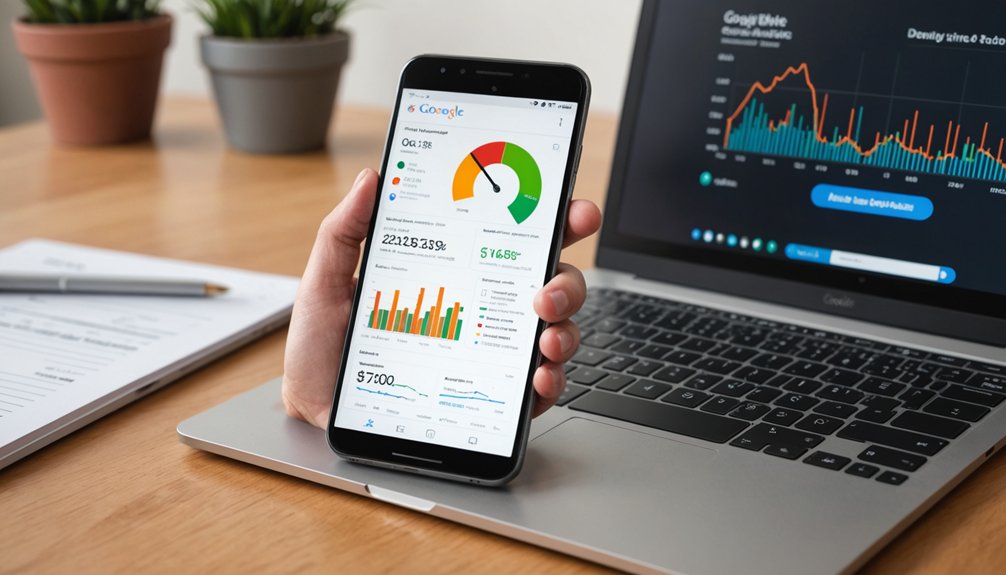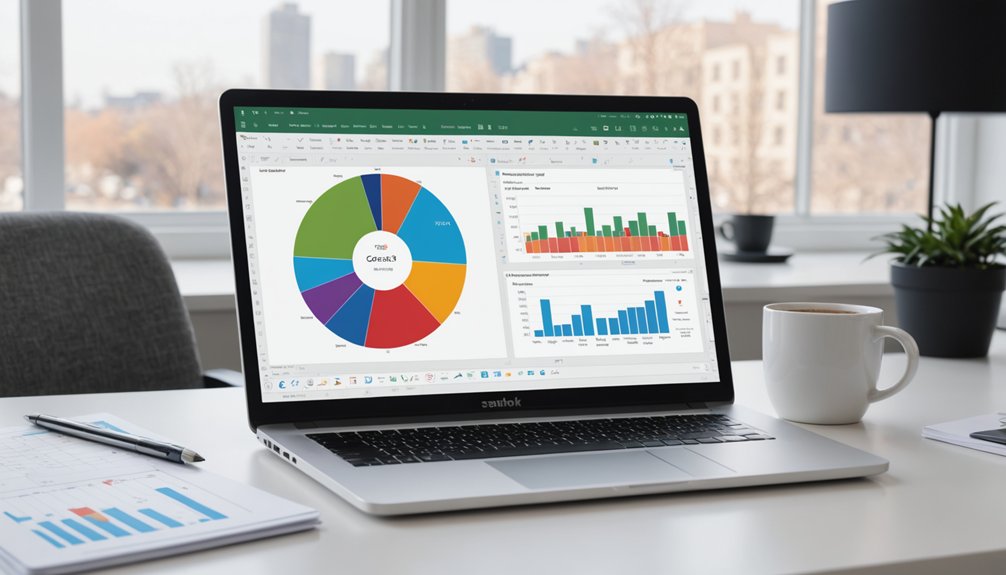Podcast SEO isn’t optional anymore. By 2025, thousands of shows will compete for listener attention, and quality content alone won’t cut it. Smart creators use keyword research, detailed show notes, and dedicated websites as their secret weapons. Platform-specific optimization matters too—YouTube needs different tactics than Spotify. Analytics separate pros from amateurs. Niche topics make standing out easier, especially with targeted keywords. The podcast landscape is brutal; only the SEO-savvy will survive the algorithmic hunger games.

Thousands of podcasts launch every month, yet most remain undiscovered in the vast digital wilderness. The difference between obscurity and fame? SEO. Not just any SEO—podcast-specific strategies that actually work. By 2025, the competition will be even fiercer, making smart optimization non-negotiable.
Keyword research sits at the foundation of podcast SEO. Tools like Ahrefs, SEMrush, and Google Trends reveal what potential listeners are searching for. Creating long-tail variations of your main keywords helps capture more specific search intent. Nobody finds content by accident anymore. Search engines do. And they need text to work with, not just audio files. This is why transcripts aren’t optional—they’re essential. Like predictive analytics in email marketing, understanding search patterns helps optimize content for maximum visibility.
The digital ear of search engines craves text. Without transcripts, your audio brilliance remains invisible to algorithms that connect you to listeners.
Show notes matter more than most podcasters realize. These aren’t just courtesy summaries; they’re SEO goldmines. Detailed, keyword-rich descriptions help both humans and algorithms understand what each episode covers.
And yes, having a dedicated website makes a massive difference. Platforms like Spotify are great, but they don’t replace a content hub you actually control. Dedicated websites significantly enhance search engine optimization potential, creating a centralized location for all your podcast content that search engines can thoroughly index.
The smart podcasters are transforming episodes into thorough blog posts. Same content, different format—twice the SEO value. Structure matters here. Headings, embedded players, timestamps. The works. Search engines eat this stuff up.
Backlinks remain powerful currency in the SEO world. Getting mentioned by established podcasts or relevant websites isn’t just an ego boost—it signals credibility to search algorithms. They’re hard to get. Worth it, though.
Platform-specific optimization is often overlooked. YouTube SEO differs from Spotify SEO. Different algorithms, different requirements. Thumbnails matter on one, metadata on another. Cross-promotion across platforms amplifies reach exponentially.
Analytics tracking separates professionals from amateurs. Can’t improve what you don’t measure. Downloads are vanity metrics if they’re not converting to loyal listeners.
The podcast landscape of 2025 will reward those who master these strategies and punish those who ignore them. Quality content matters—but without SEO, it’s just shouting into the void. Nobody hears podcasts that can’t be found.
Focusing on niche topics makes it significantly easier to stand out in the increasingly crowded podcast environment, as specificity helps identify the most relevant keywords for your unique audience.
Frequently Asked Questions
How Does Podcast Length Affect SEO Ranking?
Podcast length doesn’t directly impact SEO rankings. But it matters indirectly.
Shorter podcasts often see higher completion rates—listeners actually finish them. Higher engagement sends positive signals to algorithms.
Longer episodes? They need killer content to maintain interest. Some platforms favor consistent episode lengths.
Truth is, content quality trumps duration every time. The sweet spot varies by audience. A tech podcast might thrive at 25 minutes while history buffs happily consume three-hour explorations.
Know your listeners.
Can Podcast Transcripts Improve Visibility Across Multiple Platforms?
Podcast transcripts are SEO gold across platforms. Obviously. They transform audio into searchable text, making content crawlable by search engines.
Not just Google – everywhere. Transcripts boost visibility on YouTube, social media, and podcast directories simultaneously.
They’re accessibility tools too. Deaf or hard-of-hearing audiences? They can finally engage.
The data shows podcasts with transcripts get more backlinks and rank better for long-tail keywords.
Multiple platforms, one transcript, massive reach. Simple math.
What Podcast Hosting Services Offer the Best SEO Features?
PodBean takes the lead with its automatic submissions to major directories, making it a no-brainer for SEO-conscious podcasters.
CoHost brings solid analytics to the table, though it’s less explicit about SEO features.
Most hosting services offer customizable themes and distribution tools that boost visibility.
The best options? Those with embeddable players, transcript support, and detailed analytics.
No perfect solution exists, folks.
Different hosts excel at different aspects of SEO.
Choose based on what matters most to your podcast strategy.
How Frequently Should Podcasts Be Released for Optimal SEO?
Podcasters should release episodes at least twice a week for ideal SEO performance. This frequency keeps search engines happy, constantly indexing fresh content.
Consistency matters more than quantity, though. Listeners expect reliability – they’ll bail otherwise. Regular releases build audience loyalty and improve search rankings by signaling value to Google’s algorithms.
Plus, frequent publishing provides more opportunities for keyword-rich transcripts and show notes. The content machine never stops. Search engines reward the consistent creators, not the sporadic ones.
Do Guest Appearances on Other Podcasts Impact Your SEO?
Guest appearances on other podcasts absolutely impact SEO.
They’re like digital networking on steroids. Backlinks from podcast websites boost domain authority—especially when they’re from high-authority sites.
The SEO benefits aren’t instant, though. Traffic increases gradually as those backlinks start working their magic.
Plus, appearing on niche podcasts puts you in front of targeted audiences who actually care about what you’re selling.
Smart podcasters track these appearances with analytics. The data doesn’t lie.




